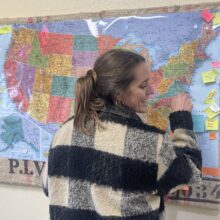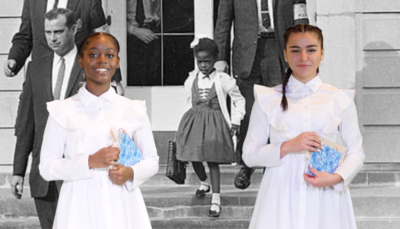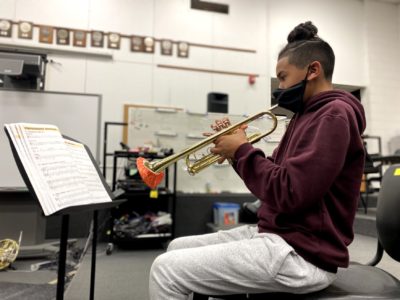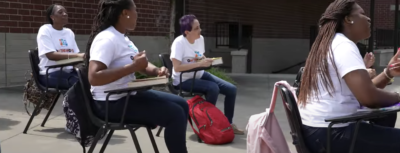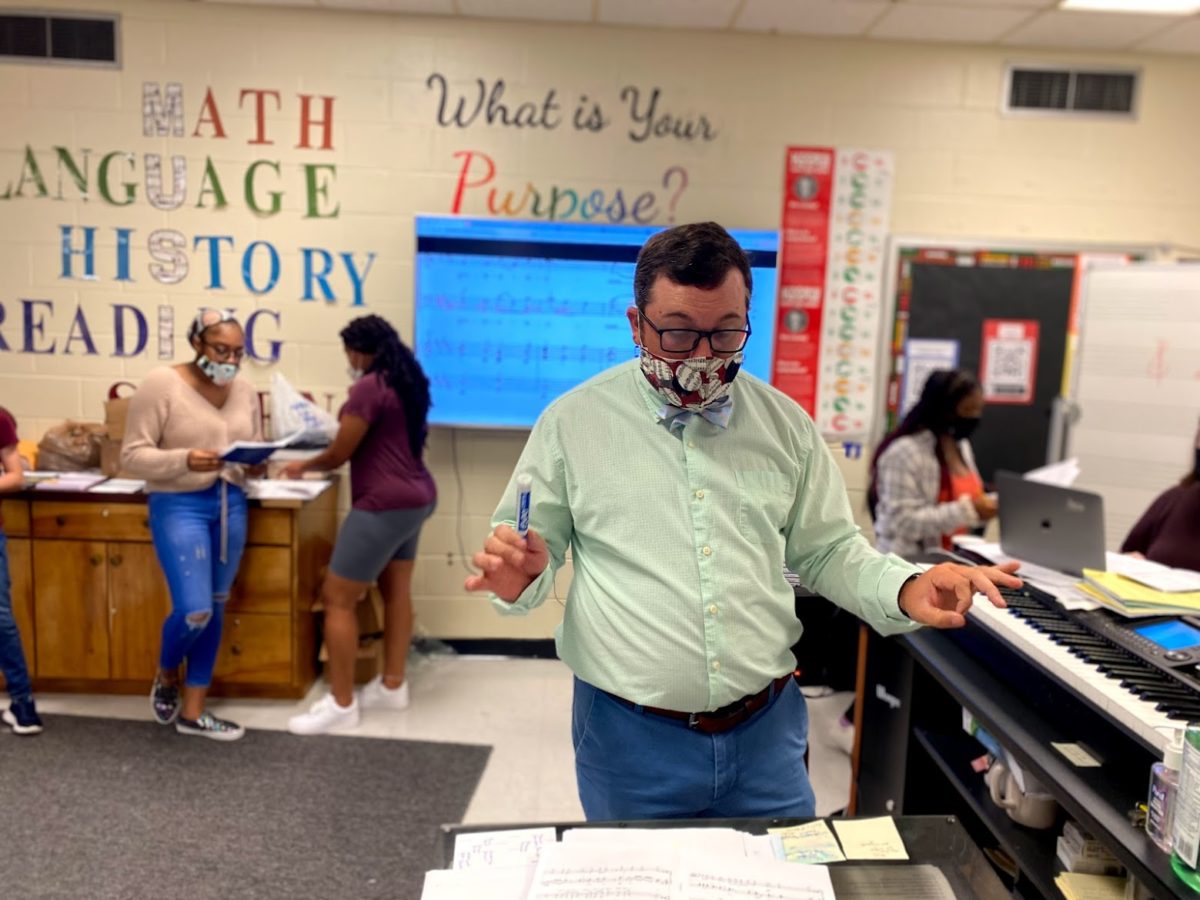
|
|
In Devin Hocutt’s vocal ensemble class, the question “What is your purpose?” is painted on the front wall facing students. The group of singers that make up vocal ensemble meet five days a week, for two hours a day, and their voices harmoniously bounce off the painted question.
Hocutt, director of choral activities at Harnett Central High School in Angier, always wants his students to be thinking about their purpose and their “why.”
The day we visited, Hocutt announced the three student directors for this school year. Students who apply to be directors must be dedicated to the ensemble and want major leadership roles within the class. Student directors are there to be peer mentors and make themselves available to answer questions. They also get to choose a piece for the class to perform and take the lead on instructing.
“Hardworking, determined, patient, optimistic, passionate, and we love music. That is us. That’s what we do. That’s who we are every day.”
Devin Hocutt, director of choral activities at Harnett Central High School, reading an excerpt from a nomination for a student director
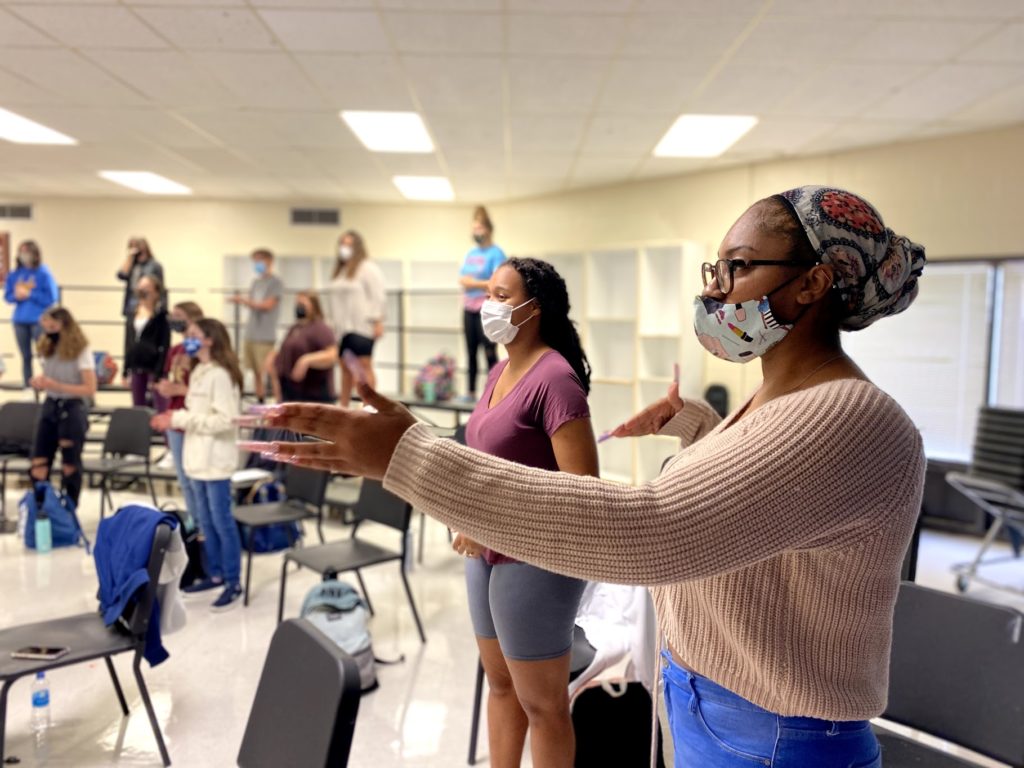
In this 46-person choir, there are other coveted student positions such as recruitment and wardrobe coordinators, section leaders, president, vice president, and secretary. How does this teacher create so much engagement in the classroom?
“Mr. Hocutt’s love for music is contagious,” said Harnett Central Principal Catherine Jones.
Hocutt and vocal ensemble
Hocutt is starting his eighth year at Harnett Central. He grew up on a farm outside of Garner and was blessed with one of those special musical ears — if he can hear it, he can play it without practice.
He attended Southeast Raleigh High School and said the choir director there fostered his love of music. She took his class to places like Carnegie Hall and Canada, opening up the world to him. Now, it’s something he strives to do with his students.
At Harnett Central, Hocutt teaches two sections of mixed chorus and the vocal ensemble. Vocal ensemble holds auditions every spring for students to be part of the ensemble the following school year. They perform for other schools in the district and community events. According to Hocutt, the biggest recruiting tool for vocal ensemble are the kids themselves.
“They’re not afraid to go and tell and share why they love it, what we do, and why their friends should be a part of it,” said Hocutt.
The 2020-21 school year was a difficult one for him and his students. “The biggest challenge that we had last year was that we were not allowed to do what we love to do,” said Hocutt. They were not allowed to sing. Instead of singing, he taught music history and music theory. He taught songs and got composers to do a Google Meet session with students. The last year was a struggle, but to encapsulate that experience, Hocutt’s vocal ensemble theme of this year is “We are the future; honoring the past, and moving forward.”
He tries to bring that theme into everything they do, thinking in context of the music he selects, and the feelings it can evoke in his students.

Students reading notes in vocal ensemble. Caroline Parker/EducationNC 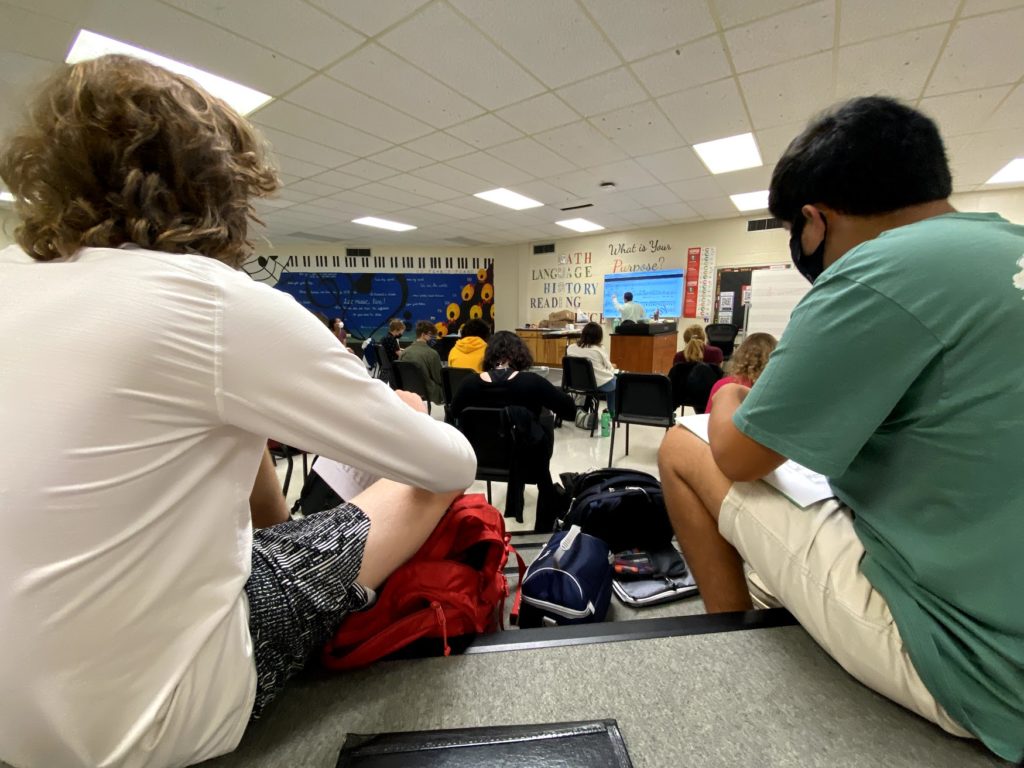
Students sitting on choral risers at Harnett Central High School. Caroline Parker/EducationNC
Hearing from Hocutt’s students
Hocutt posed the question, “How does music cross boundaries?” to the class the day we visited, before they really got to singing. The class practices a wide range of pieces, some not written in English. He asks this question because he wants students to think about how even if you don’t understand the words, in music, you can understand the feeling. These were some of the students’ answers:
“It allows people to bond with other people, even if they don’t have anything in common”
“It [music] really makes you feel connected to that artist in a way that they’re singing about emotion that maybe you can’t express properly. It helps you understand, it makes you feel seen, it makes you feel heard, like you’re not alone.”
“Like in here, we’re all very different people with different beliefs, different, like, lifestyles, but we’re all able to come together and love music. And then whenever we perform that music, we’re able to touch the people that are hearing us. And so it creates such a mutual connection between the audience and the performers.”
“Music brings a sense of vulnerability”
Here are some more things his students had to say about music, how it makes them feel, and the special sauce of Hocutt:

“Music is just electrifying, like it feels like a fire’s been lit beneath you. And you just have to move … if you’re having a not-good day, and you don’t feel quite as alive, music helps. It just makes you feel alive.” – Kera Oates, junior at Harnett Central High School
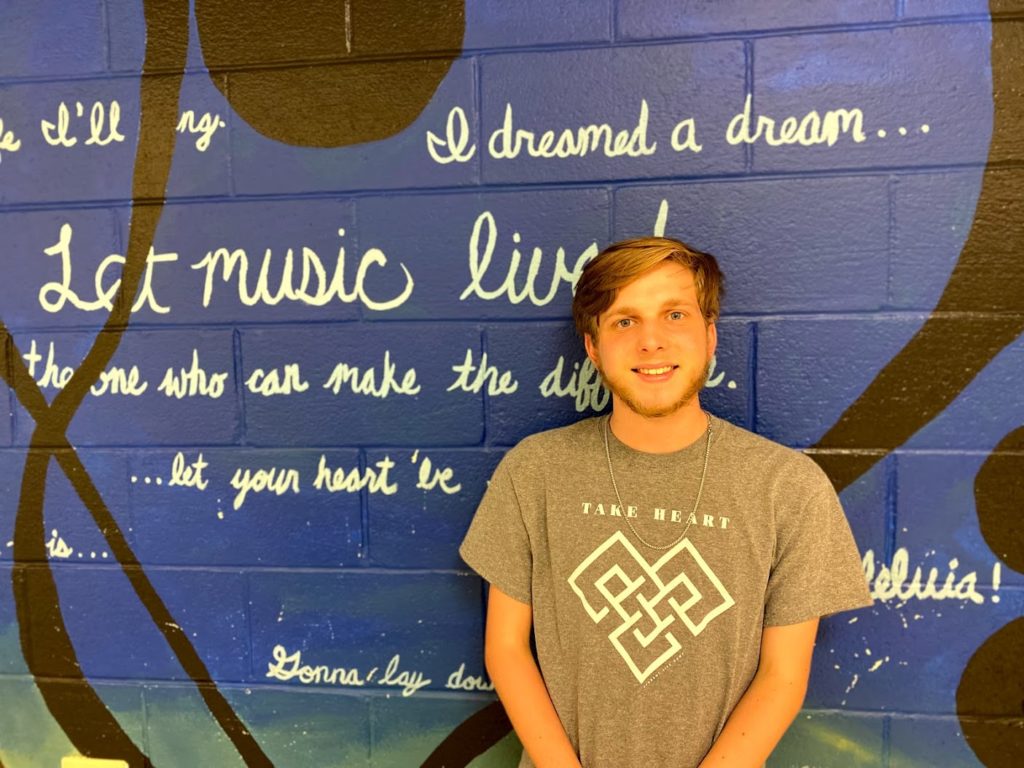
“I love music, because it gives you a different way to connect to different emotions. It gives you a different way to feel different emotions, I don’t know. It’s like a way of expressing things that words can’t always do.” – Hope Sharpe, senior at Harnett Central High School

“I think [music] not only brings hope, but it brings peace and love, and just pretty much every emotion on the board … through whatever song you’re singing.” – Greyson Deal, senior at Harnett Central High School
And what about Mr. Hocutt as a teacher?
Students said he supports them beyond music. Deal said it’s evident that Mr. Hocutt “wants his students to succeed and makes sure that’s a priority above all.” Oates agreed:
“He interacts. He connects with us on a deeper level with music [and] with things outside of school. He touches our hearts … Even if it’s just music, it’s so much to feel understood. And to feel like someone genuinely cares, whether it’s about music or not. It’s just such a great feeling.”
Kera Oates, junior at Harnett Central High School
